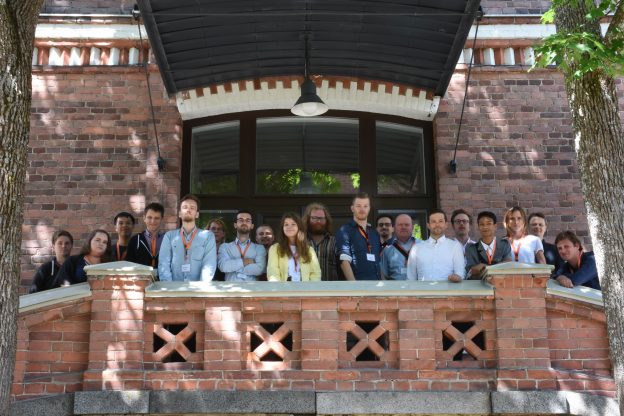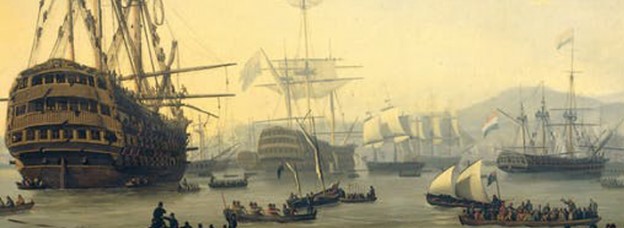Our present predicament of omnipresent uncertainty, sudden twists of fate and the sense that a serious menace looms somewhere beyond our reach make it all the more understandable what seafaring people and coastal communities fear most about piracy – both in the present and the past. Like a foreign disease that washes upon the beach, piracy has been such a threatening aspect of life at sea because it appears out of nowhere, unchecked by rules on violence or raiding. A ship appears on the horizon, seemingly friendly at first, but then flags change and a chase on the vast expanses of the high seas begins. In the nineteenth century, piracy on the Mediterranean Sea was, in fact, even considered by some to be a type of plague that had to be fought with unprecedented security measures. As such, the historical repression of piracy touches upon enduringly relevant topics of security, violence, law and the dynamics of international inclusion and exclusion. My dissertation on the nineteenth-century fight against Mediterranean piracy, which I recently defended at Utrecht University, uncovers the dynamics of security during a pivotal moment in history and shows how piracy repression helped remake the Mediterranean into a space of European imperial expansion.
Continue readingCategory Archives: Blog

Entering diplomacy through the archive: Changing from academia to the Foreign Office #career
In this blog post, dr. Daniel Stinsky tells us more about his shift from a PhD in Political History to a career in the Foreign Office in Berlin.
Continue reading
Political History PhD Network | Workshop 2019 Report (Jyväskylä)
’Political’ in Political History – Meaning and Understanding of Politics
Workshop Political History PhD Network.
17-19 June 2019, University of Jyväskylä, Finland.
Organisation
This three-day workshop was an initiative of the Political History PhD Network. It was organized by Zachris Haaparinne, Risto-Matti Matero, Jari Parkkinen, Juho Saksholm, and Joonas Tammela (University of Jyväskylä).
Continue readingCreating the Revolutionary Heroines #phdthesis
Representing revolutionary terrorists as heroes and martyrs was a typical feature of the mythology of the Russian revolutionary underground at the beginning of the 20th century. This mythology described Underground Russia, the world of the revolutionaries, as an ideal country inhabited by ideal people. The purpose of that epos was to represent the revolutionary struggle, and individual revolutionaries in such a way that they would gain sympathy from the wider public and become role models for other revolutionary fighters. Sympathetic representations of women who committed political violence seem to be especially shocking in the context of Russia at the beginning of the 20th century, since female violent behavior contradicted the existing gender order.
Continue readingThe Making of the Democratic Party #phdthesis
When more than 150 years ago the Dutch newspaper Het Nieuws van de Dag (News of the Day) described the future of politics as “in darkness”, it warned its readers that “the bloody feuds of yore are coming again”.[1] What sounds like a line from a post-apocalyptic movie bears an interesting analogy on current discussions about the future of Western politics. Recently, scholars have painted an equally dark picture warning about the “hollowing of Western democracy” and identified a future of “post-democracy”.[2] In the center of these concerns is the ability of political parties to fulfill their function as a core institution of democracy. Scholars fear that decreasing membership numbers are a symptom of democratic decay. Parties will lose their ability to connect political elites and civil society, and, thereby, inevitably extend the void between rulers and the ruled.
Continue reading
Securing Europe after Napoleon #newbook
Securing Europe after Napoleon. 1815 and the New European Security Culture, edited by Beatrice de Graaf, Universiteit Utrecht, The Netherlands , Ido de Haan, Universiteit Utrecht, The Netherlands , Brian Vick, Emory University, Atlanta (Cambridge: Cambridge University Press 2019), 325 pages, ISBN-13: 978-1108428224.
Continue readingHenk te Velde installed as new President of the APH
Henk te Velde has been installed as the new President of the APH. At the 6th international PhD conference in Paris, 20-22 June he made a short statement on the future of the Association:
Continue reading